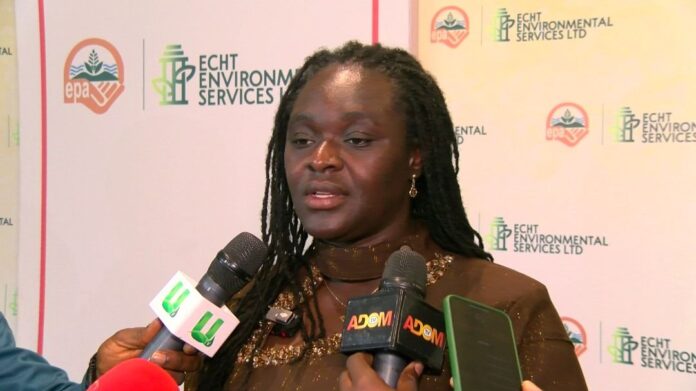Parliament has passed the long-awaited Air Quality Management Regulation, a landmark law aimed at improving air quality and strengthening enforcement standards across Ghana, the Chief Executive Officer of the Environmental Protection Authority (EPA), Professor Nana Ama Brown Klutse, has announced.
Speaking at the commemoration of the International Day of Clean Air for Blue Skies in Tema, Prof. Klutse, through a speech read on her behalf, said: “It is my joy to announce that the long-awaited air quality management regulation has been passed into law by parliament and will soon be available for implementation.”
She explained that the new regulations would not only promote cleaner air but also enhance the enforcement of standards nationwide. The EPA CEO highlighted that successful implementation would require the creation of an Air Quality Information Management System, urging all stakeholders to provide the necessary data and support to make this vision a reality for Ghana.
Stressing the critical role of accurate air quality data in combating pollution, Prof. Klutse expressed gratitude to individuals and groups who have invested in monitoring air quality across the country. “We are racing against time for clean air, racing for solutions, racing for survival for the entire ecosystem,” she emphasized, calling on all sectors to join in accelerating efforts to secure clean air for all citizens.
Prof. Klutse affirmed that clean air is a fundamental right and a vital component in the fight against climate change. To this end, the EPA has implemented multiple interventions, including enforcing environmental assessment regulations that require industries to adopt preventive measures, install pollution control systems, and monitor emissions.
Additional initiatives include the Ghana Online Continuous Emission Monitoring System (GOCEMS), which strengthens real-time monitoring and enables prompt action against emission episodes. The EPA has also collaborated with the Ghana Standards Authority and stakeholders to develop comprehensive air quality standards that define permissible emission levels and measurement methods for industrial, vehicular, and ambient sources.
Public awareness campaigns on the dangers of air pollution, alongside the Air Quality Management Plan (AQMP) for the Greater Accra Region, further demonstrate EPA’s coordinated, multisectoral approach. These efforts target major pollution sources—including transport, industry, and waste management—to improve air quality.
To support these initiatives, the EPA has established air quality monitoring networks in Accra, Takoradi, Kumasi, Tema, and Tamale. Prof. Klutse said: “This year, the Authority, with support from the Energy Institute of Chicago (EPIC) Air Quality Fund, has established a monitoring network in Tema consisting of seven low-cost sensors, with one reference-grade monitor to be added by the end of the year.
This will provide real-time data to track pollution levels in Tema to inform decision-making. We wish to appeal to other stakeholders to support this initiative to extend the network in Tema to provide comprehensive data for our main harbour and industrial enclave.”
Through these combined measures, Prof. Klutse affirmed, Ghana is taking decisive steps toward cleaner air, healthier communities, and a more sustainable environment.
Source: myjoyonline
ALSO READ:


